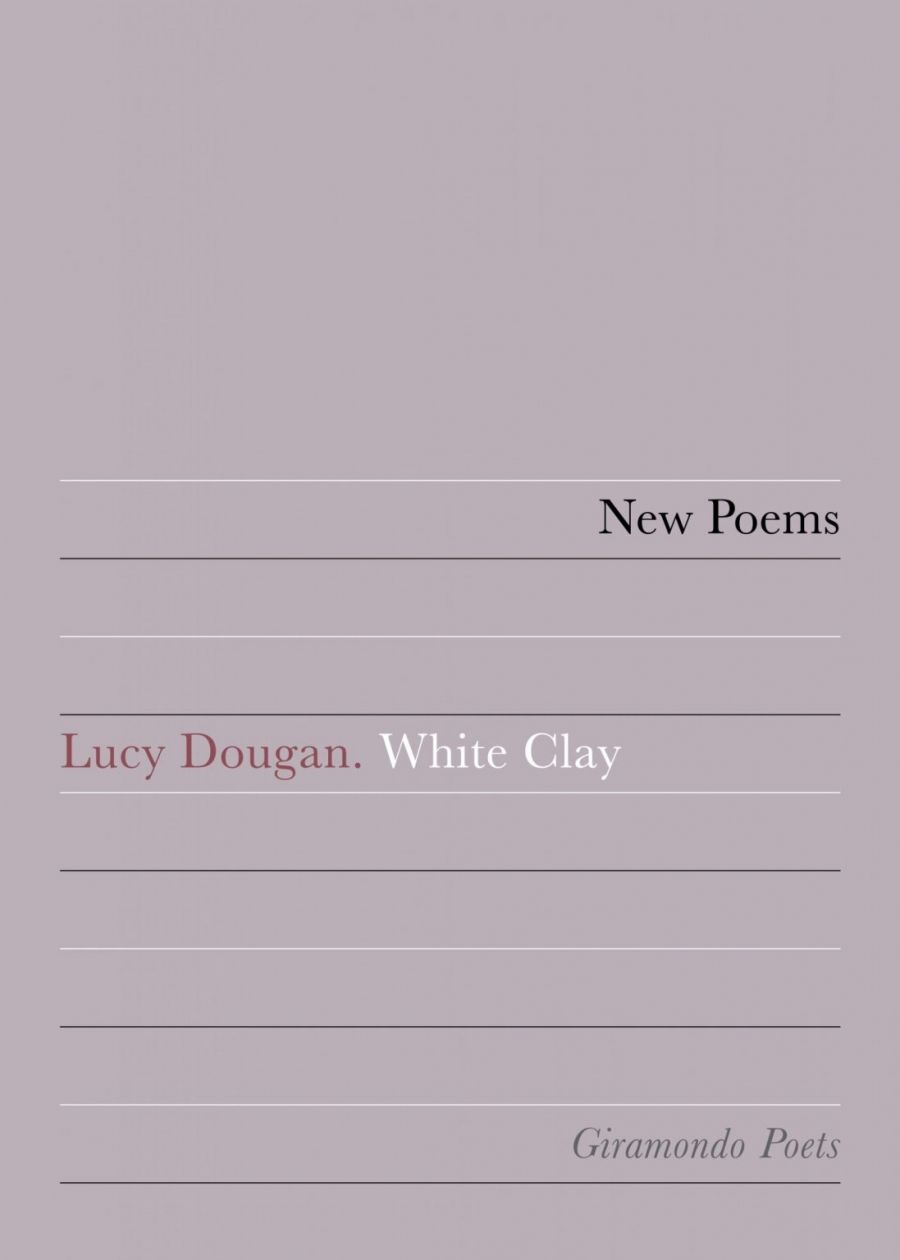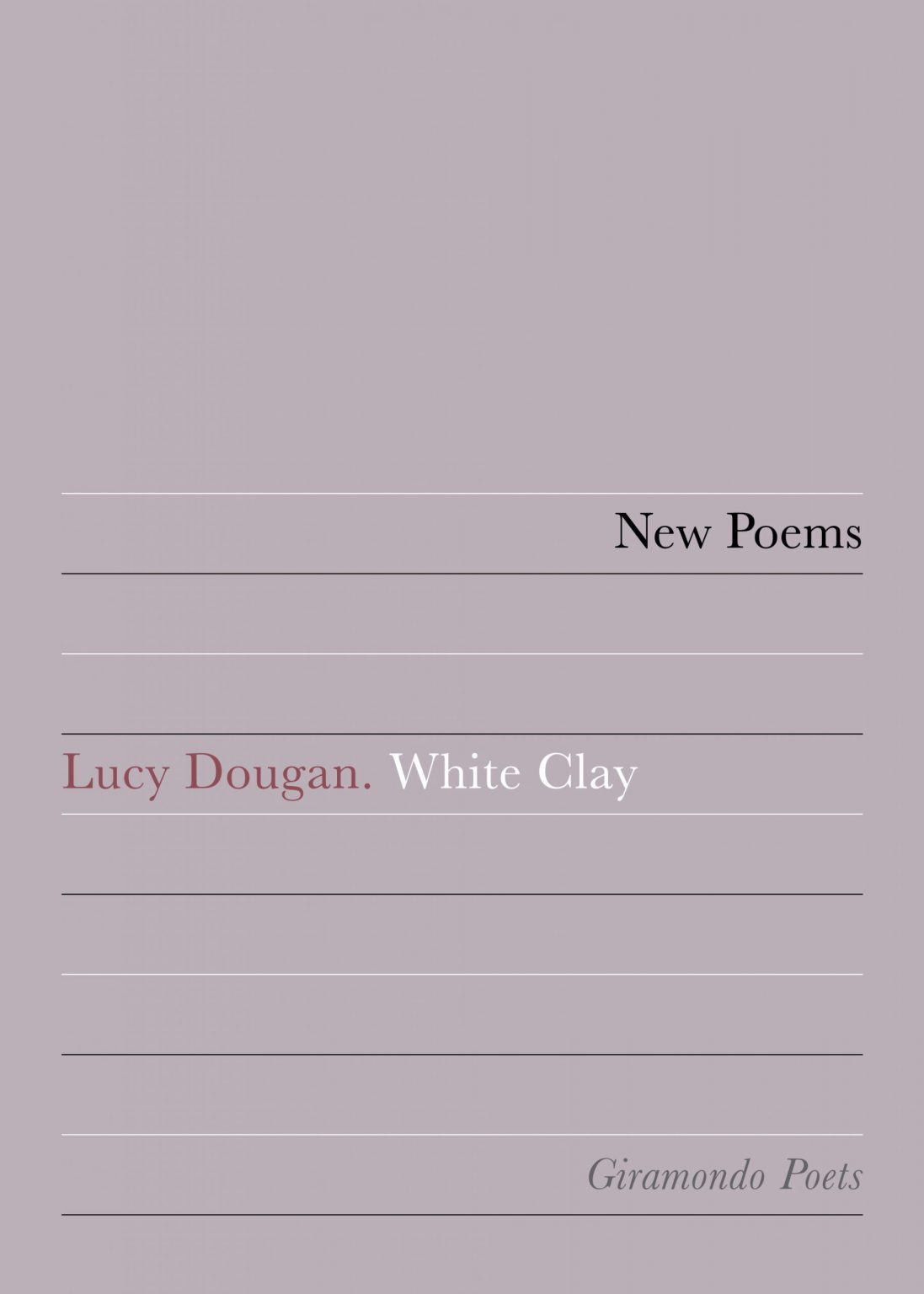
- Free Article: No
- Custom Article Title: Disconcerted memory
- Review Article: Yes
- Article Title: Disconcerted memory
- Online Only: No
- Custom Highlight Text:
Lucy Dougan’s recent collection of poetry, White Clay, demonstrates a considerably wider range than her first collection, Memory Shell (1998), while reaffirming how centrally preoccupied her poetry is with the potency of lost time, and also with finding the truth behind appearances, locating what is hidden or marginal and tracking down family ghosts.
- Book 1 Title: White Clay
- Book 1 Biblio: Giramondo, $22 pb, 91 pp
- Book 1 Cover Small (400 x 600):

- Book 1 Cover (800 x 1200):

The opening poem is, to a significant extent, emblematic of the volume as a whole, presenting its persona ‘slip[ping] into the lane’ where ‘there’s another order’. Time ‘drops its guard’ and the ‘backs of things show themselves / without pretence’. It is as if much of what is authentic takes place at the peripheries of existence and through a transformative shedding of mundane preoccupations. And while some of the poems in this collection enact puzzlement, uncertainty and discomposure, there is an attractive and unsettling intimacy about them: attractive because of the eloquence with which Dougan engages with her often tricky subject matter; unsettling because disturbance lies at the core of what is intimately known.
An early group of poems in White Clay probes the relationships between literature, language and life. ‘Interleaved (On Finding Lines Copied from Rupert Brooke)’ is a meditation on how the interaction of different kinds of experience – contemporary, historical and literary – complicates perception and understanding; ‘Reading Anna Karenina’ affectionately delineates literature’s shifting sympathies and beguiling characterisations; while a poem on Shirley Hazzard’s The Transit of Venus (1986) – a subject previously and differently addressed in Memory Shell – investigates the poignant interactions of desire, loss and memory:
so the page is suddenly full of presentiments
and no-one can tell if they are good or bad
simply that he held the hours
of their precious first last day
in the crisp lawn band
of her waist
Such fraught tension between what is coming-into-being and doubtful ‘presentiments’ is a consistent preoccupation. In ‘Coil’, for example, Dougan writes about an unborn child being ‘all potential’ while her mother ‘lies on the grass / at a cricket match’. The child’s ‘loaded coil’ ‘travels down to the Pharaoh / squat in his sanctum, / or to the winter king / cocooned in the deep green / sleep of his barrow’. Thus the unborn child, motherhood, and the process of conception and growth itself imbibe ‘all the earth / and its histories’. For Dougan, human beings can possess a strong sense of their individuality and ‘singularity’, but never escape the webs of family and history.
In a number of poems, Dougan quizzes her family life and growth into sexual maturity. ‘On Looking Back’ depicts childhood as a destabilised series of moments that ‘copy those forebears I never knew, / recuperating in various poses against walls’. There is considerable frustration associated with such images as they evoke a child disabled by the ‘silence’ and ‘lip-pursing … dismissal’ of her father. Yet there is potency, too; a sense that needing to construct ‘a salvation made from my own devising’ has been a powerful creative stimulus. This notion is reiterated in ‘Thickly Then’ where childhood is a ‘guilty pleasure / of white bread and American shows, / latch-key afternoons’ and a time when the poet ‘learned to love loneliness / and hugged [her] singularity close’.
The title poem, ‘White Clay’, is one of a number in which the metaphors of sculpting, making and casting are employed: ‘In high school / she moulded a man / and a woman’ and ‘the man lay along / the woman’s back.’ This intimate image shifts into a consideration of how the bodies of boys ‘could not be counted on / to do what her hands wanted’. In ‘Frangipanis’ the persona is led ‘to the door of a boy / who led me to feel bare, edenic’. Then, in ‘Perfectly Good Evenings’, the poem’s speaker feels the ‘need coming off them, / those little men’ who ‘spoilt perfectly good evenings, / asking will you carry my babies’. As the poem moves towards the realisation to be achieved with ‘ramshackle boys’, its persona once more finds ‘another life’ and her ‘true lineaments’ at the margins.
‘Compact’ and ‘The Journey’ also document the search for such lineaments, tackling the subject of ‘true fathers’. The persona of these poems is ‘set to dissemble’ with knowledge of ‘the secrets between us / of lies and lineage’. She understands that a creative, sustaining plurality resides in the interior life of the individual, commenting ‘I might build an internal Armada’. The search for external validation is, on the other hand, relatively sterile, as she finds ‘not one drop / of air or water / that held [his] name’. As further poems develop this theme of a father and his family that is lost even as it is found, there is an associated sense of fragmentation – of the ‘broken’, ‘dispersed’ and ‘fugitive’.
There are other, more hopeful poems in this collection, poems about the sustenance derived from a sister’s letter (‘Old Letter from My Sister’), about the delicate symbolism of love (‘Tokens’), and a number of poems about the transformative power of dreaming and the imagination. ‘Small Family of Saltimbanques’ – perhaps an allusion to Picasso’s famous painting – celebrates the family intimacy, ‘democracy of looks’ and only partly realised capacities of a group of circus performers who exist outside of the mainstream. This is a poised and subtle poem that, like all of this collection, relies on a nuanced attentiveness to language in expressing a great deal that is usually elusive or unspoken.


Comments powered by CComment